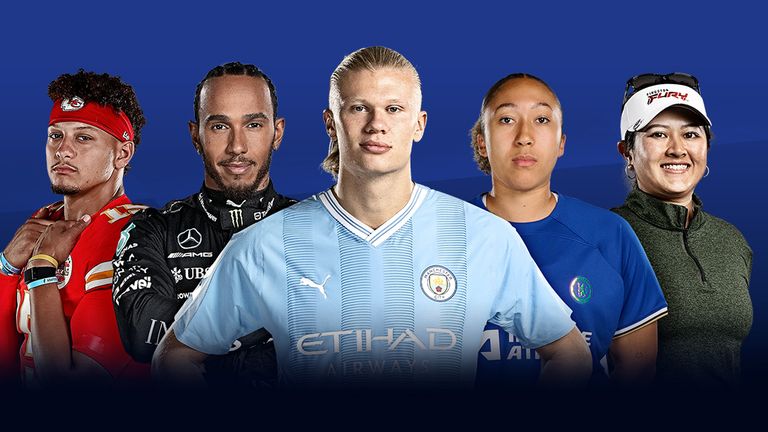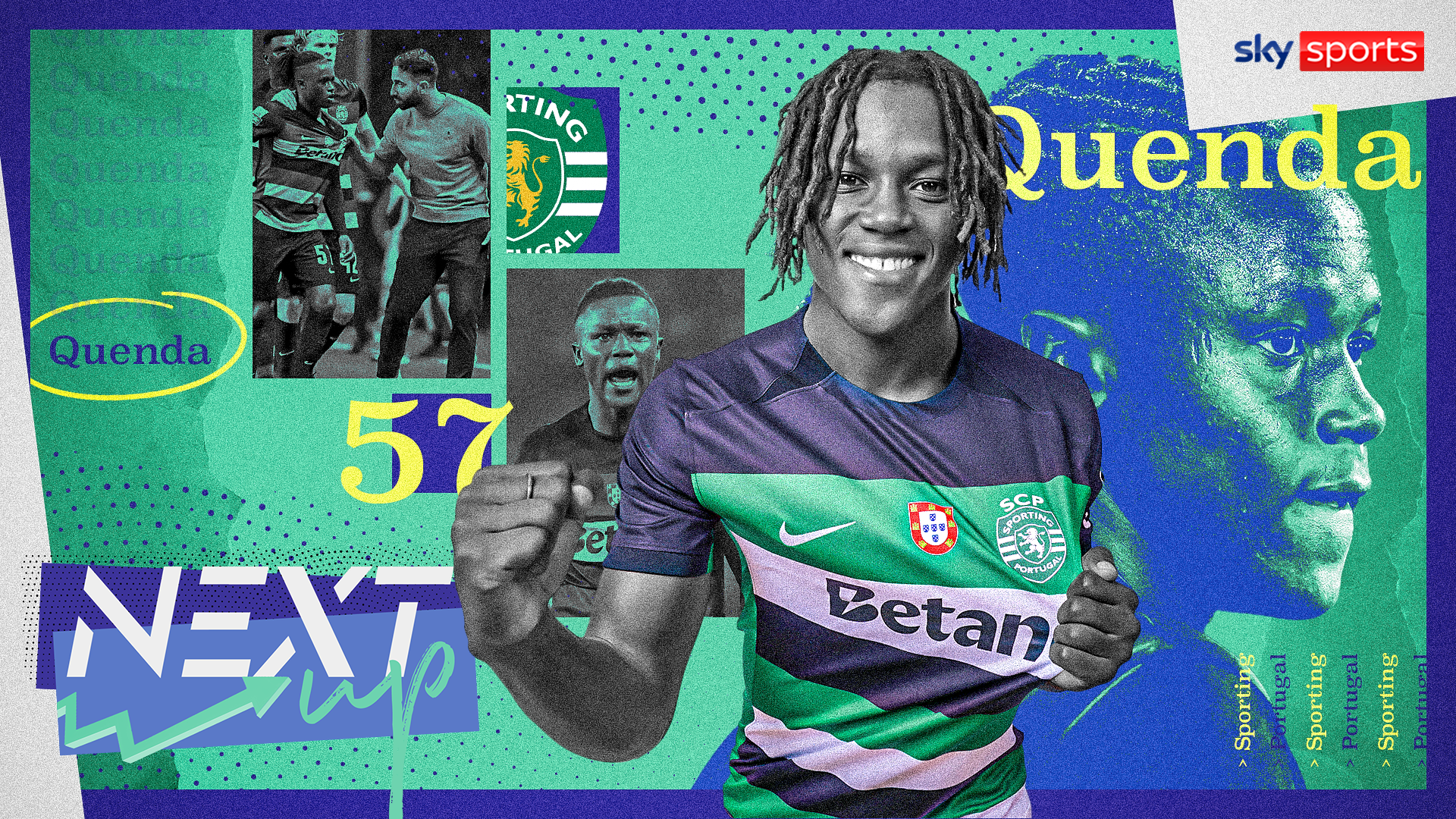
Geovany Quenda learned his trade at Sporting’s Cristiano Ronaldo Academy, but is now surpassing the records of the legend those training facilities were named after.
At just 17, the right-winger has evolved into a wing-back in his first season of senior football and become Sporting’s youngest-ever goalscorer in the league.
Given his chance at Sporting by new Manchester United head coach Ruben Amorim, Quenda has emerged this season as one of the brightest prospects in Europe.
His defence-splitting pass for Viktor Gyokeres’ equaliser in Sporting’s stunning 4-1 win against Manchester City in the Champions League showcased why.
City and United are just some of the clubs tracking Quenda, although the number of eyes on Portugal’s latest talent will only grow. Soon, it seems, everyone will be watching.
Geovany Quenda is Next Up.
"He is magic. He has a spectacular future with the national team"
Roberto Martinez, Portugal head coach
"Quenda is one of the best players in the Portuguese league"
Joao Cancelo, Quenda's Portugal team-mate
"He is different from any other player I have trained"
Fabio Roque, Quenda's youth coach at Sporting
‘Saka the best comparison – but no one's like Quenda’
Quenda's name has come to the fore since United took Amorim from Sporting. Wing-backs are essential to his system and there are not too many obvious candidates to fill the role at Old Trafford.
United are among the clubs to have taken notice of the 17-year-old’s impressive debut season, and their interest pre-dates Amorim, although reports in Portugal of an approach are premature.
The left-footer, whose buy-out clause stands at €100m (£83.3m), has been thriving on the right as the more advanced wing-back in Amorim’s 3-4-2-1 system, scoring twice this season.
“That formation is perfect for him,” Fabio Roque, one of Quenda’s coaches at the Sporting academy, tells Sky Sports. “When Amorim arrived, it was clear as water that Quenda could fit into that very well."
The teenager played most of his academy football in the forward line of a 4-3-3, predominantly on the right, cutting inside. “He has a great relationship with the goal and is very good one vs one,” says Roque.
Naturally a winger, it is easy to reach for Lamine Yamal, also left-footed, when searching for a similar profile. The Barcelona forward, like Quenda, was born in 2007. “I understand the comparison, but Geo covers so much more space,” says Roque.
This is what made Quenda so suited to being converted into a wing-back. “He is so committed in defensive moments and defensive duels," adds Roque. "He plays so well there because the space that he covers on the field is huge.
“Geo is so demanding with himself in the defensive moments. To close, to recover fast, to win the defensive duels for his team-mates. It reminds me of Bukayo Saka in the beginning of his career when he played as a full-back."
The Arsenal forward, Roque says, is the most accurate comparison for Quenda. But he makes clear this does not tell the whole story of the teenager's potential.
"There is only one Geovany Quenda," says Roque. "He is different from any other player I trained. He can create a mark on football that is totally different.
"We are talking about, with Lamine Yamal and Estevao Willian [set to join Chelsea in the summer of 2025], probably the best players in that generation born in 2007."
How the boy in jeans got to Sporting
The story of Quenda's arrival at his first club is a remarkable one. On his initial visit to his local team, Damaiense, Quenda saw his soon-to-be team-mates playing in a game and asked if he could join in.
However, Quenda, not even 10 at the time, was in his normal clothes. Jeans and shoes. The club did not have his kit ready, so he had to settle for playing on his own with a spare ball on the side.
Quenda (front row, bottom right) with his Damaiense team-mates
Quenda (front row, bottom right) with his Damaiense team-mates
His quality was immediately clear. "I went to speak to the president and told him that what I had seen was very interesting, that there could be talent there," Ana Correia, Quenda's U9 and U11 coach at Damaiense told Sabado. "I convinced him to make an exception."
Roque was not present, but this moment was often spoken about at Sporting. "People that tell the story say that he totally killed everybody in training while wearing jeans," he says. "It is not normal. He is that kind of kid."
Word of Quenda's talent travelled quickly and he joined Benfica, moving from the small club 10km north of Lisbon's centre to the most successful team in Portugal. This is where Roque first laid eyes on him.
"Someone from our scouting told us that Benfica had a new player," says the former Sporting academy coach. "He was U11 when he joined. I went to watch them and there was this kid totally from street football playing on the left wing, great in 1 vs 1s. It was him.
Quenda in his Benfica days
Quenda in his Benfica days
Quenda and Roque continued to cross paths on the academy circuit. It was hard for Roque to ignore him. Benfica beat his Sporting U12s in three tournaments in just one season. Each time, Quenda scored the decisive goal.
In the final tournament, when it was known to Roque and a few others that Quenda would be joining Sporting, he told the youngster before a game: "You have to stop killing us all the time!"
Quenda, also aware of his imminent move, responded: "You don’t have to worry anymore." That is where his Sporting story began.
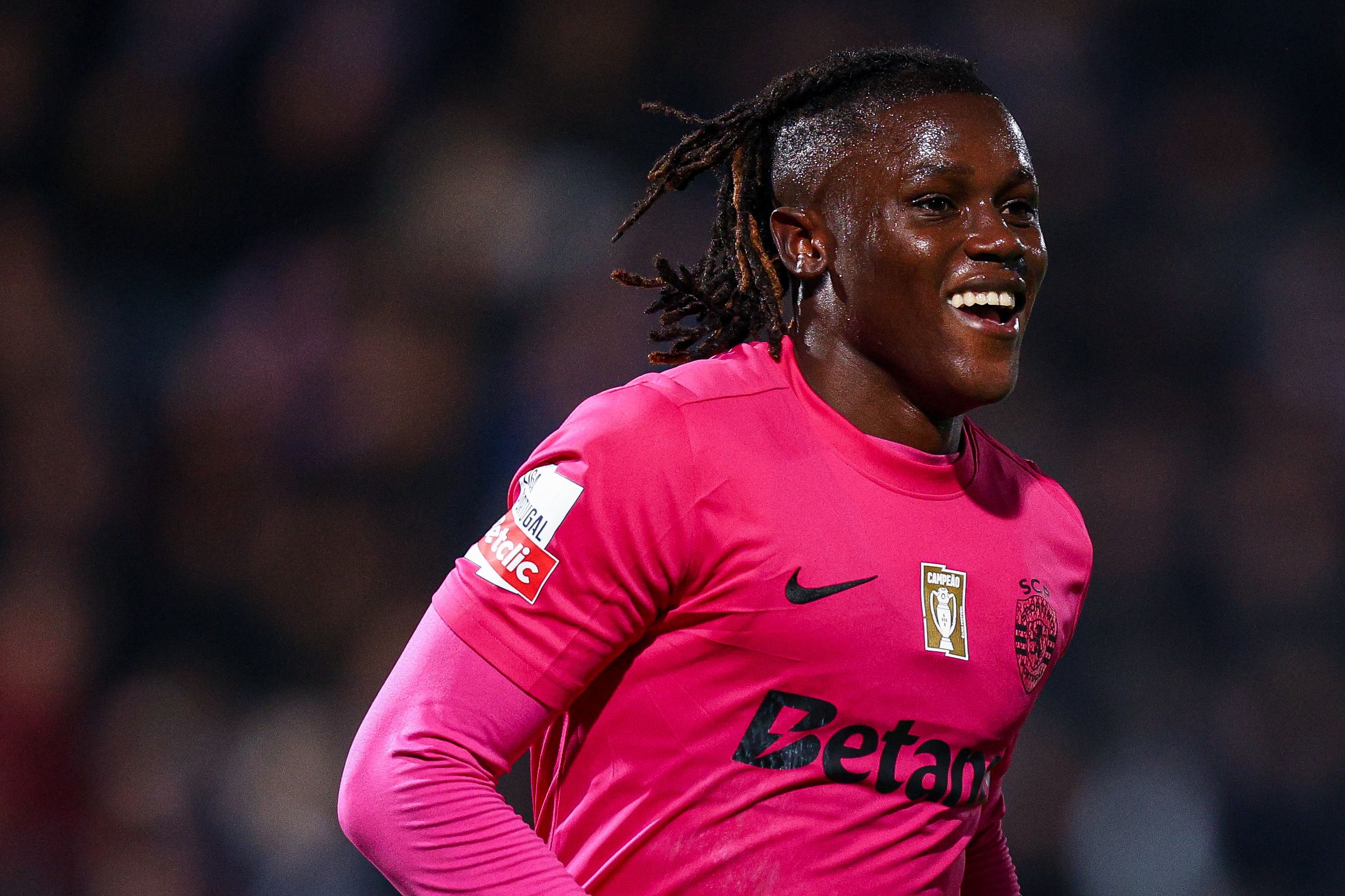
Why Sporting were so convinced about Quenda
Quenda would not work directly with Roque until he was playing a year up in the U15s. Even from that young age, it was apparent to Roque and his colleagues that, barring any accidents, Quenda would make it.
Beyond his obvious footballing ability, it was Quenda's mentality that convinced everyone at Sporting of his destiny. "His personality is one of the biggest reasons he is doing what he is doing now," says Roque.
"The talent has to be there, but having the capacity to understand where you are and to seek out those challenges all the time is what makes the difference for Quenda."
Roque saw first-hand Quenda's strength of character in one of Sporting's academy matches against rivals Benfica. His side just made it in to half-time level despite having had a player sent off after 15 minutes.
"Imagine, it was an important game," he says. "It's always so competitive against Benfica. Everyone was worried, going back to the dressing room and wondering what our strategy would be."
Quenda put his arm on his coach's shoulder as they walked in at the break and, apparently aware of Roque's concern, told him: "You don't have to be worried. We are going to win."
"He told me that like it was so obvious!" a still incredulous Roque says. "The truth is we ended up winning the game 1-0 and guess who scored the goal? It was Geo. I was like, ‘wow, he told me that would happen’. He is a very special kid."
Quenda's habit of delivering in decisive moments has not been lost since his graduation to the first-team, as evidenced by his inch-perfect assist for Gyokeres' equaliser against City. He created the moment that sparked the comeback in Amorim's final home game.
"He doesn't care who he is playing," says Roque. "He could be playing Man City in front of 50,000 people, or against his friends, he is going to play to win."
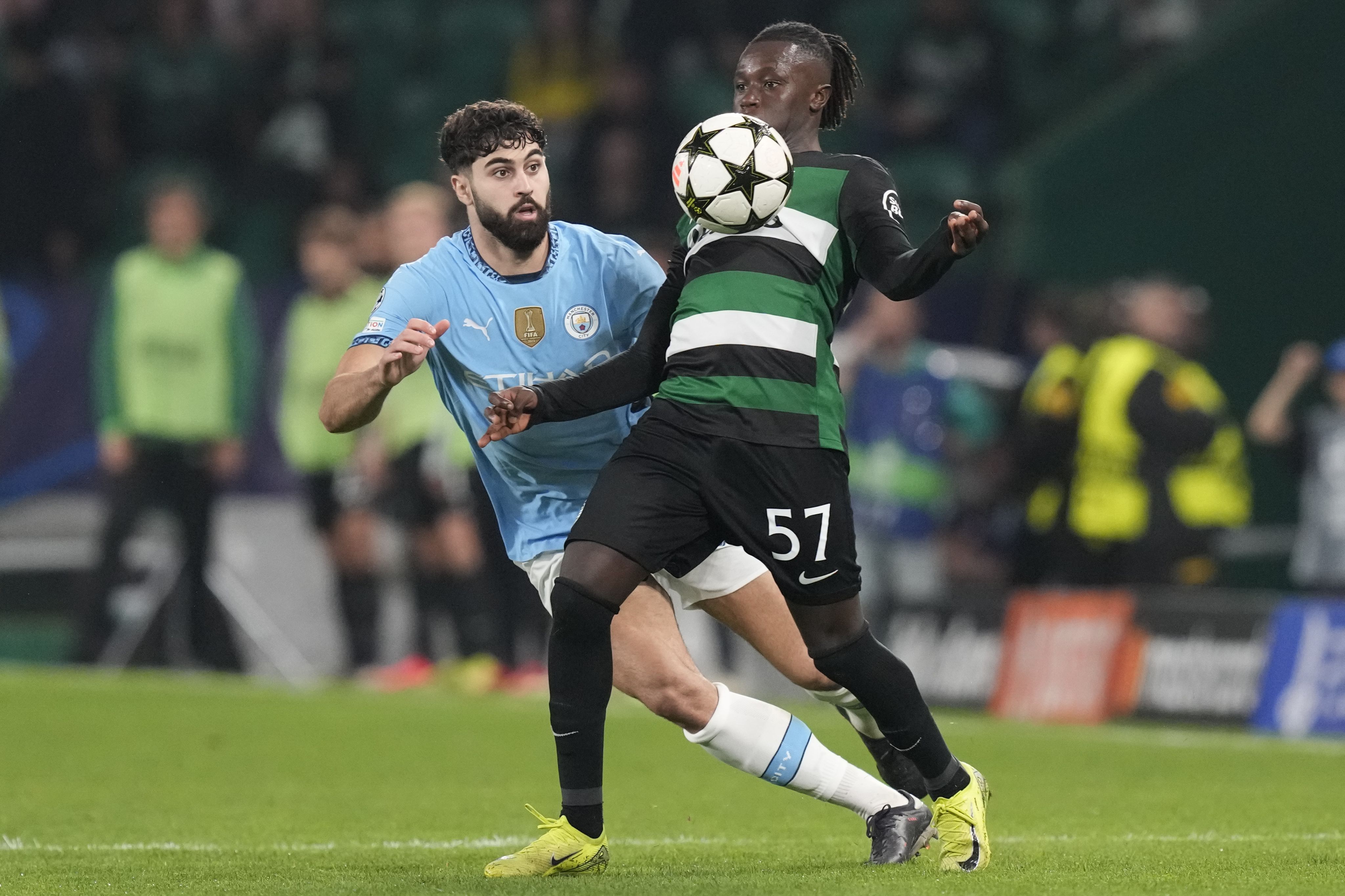
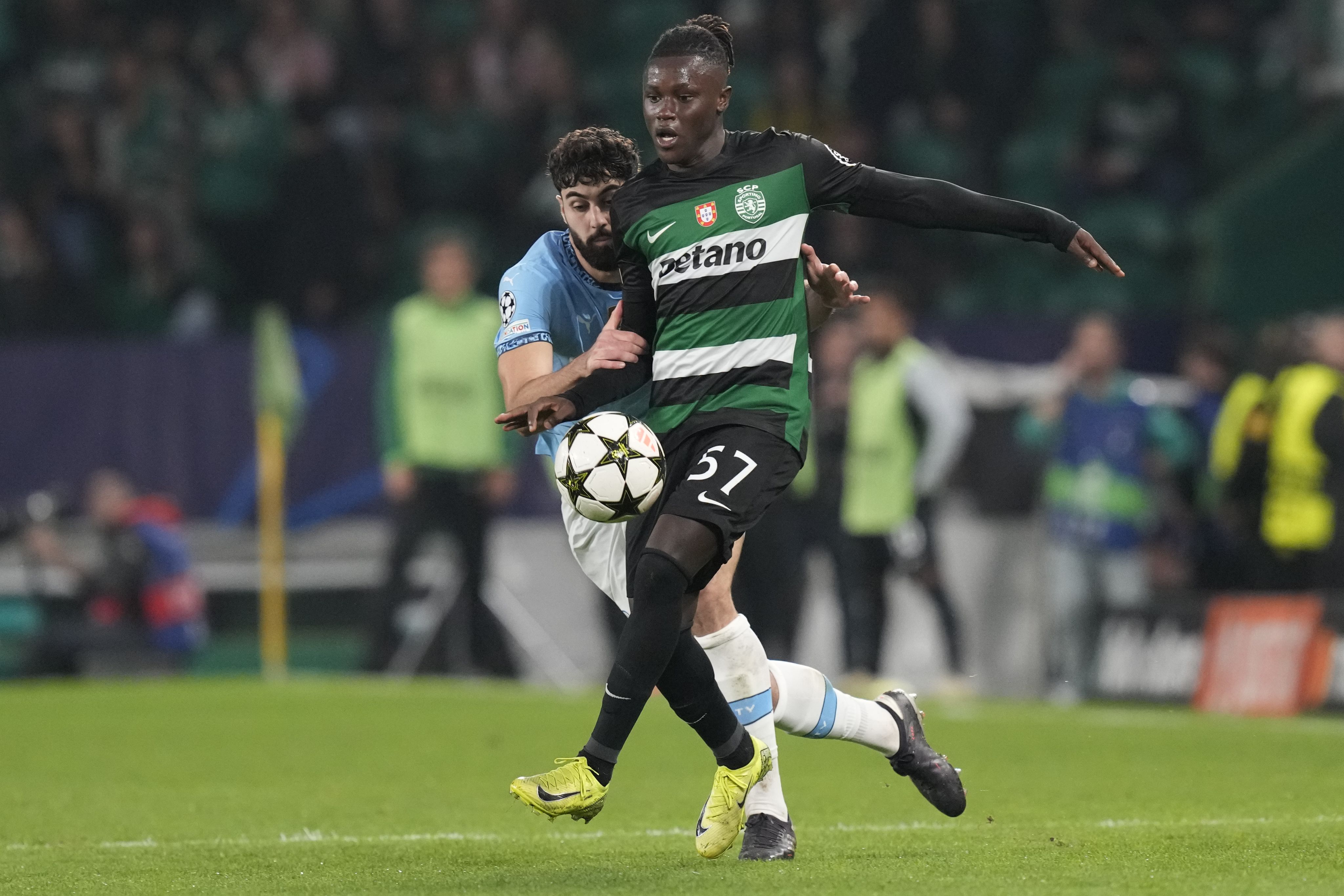
The important role of Amorim
Quenda's rapid rise is a credit to all the coaches in Sporting's academy, like Roque, but he also acknowledges the importance of Amorim in the teenager's smooth transition into professional football.
"He doesn't look for the age," Roque says of the new Man Utd head coach. "For him, it doesn't matter. He is worried about performance and the personality of the player. If they work hard and fit into his team, he gives them an opportunity."
Quenda took his with both hands, scoring 24 minutes into his professional debut in the Portuguese Super Cup against Porto. Sporting lost 4-3 after extra-time, but Amorim had gained a star.
The 17-year-old subsequently started in 10 of the next 17 games under Amorim before he left for United, during which time Sporting have remained unbeaten.
Having been asked by Sporting to return early after the U17 European Championships this summer, for which he was named in the team of the tournament, Quenda has barely had a week off since.
Heading into the international break, only three other U18s had played more minutes than Quenda this season: Yamal, his Barcelona team-mate Pau Cubarsi and Ajax's Jorrel Hato. He is in good company, there.
Quenda after signing a new deal in September that includes a release clause of €100m
Quenda after signing a new deal in September that includes a release clause of €100m
This does not happen by accident, though. Amorim worked hard on improving the connection between the first-team and academy during his time at Sporting to ensure players like Quenda would emerge.
"He was very important in that step for Geo," says Roque. "A lot of times, coaches say, 'oh, maybe he's not ready. It's a big jump'. With Ruben Amorim, things are different. That's why, for me, he is special.
"He was brave enough [to give him the chance]. He's a coach that gives a lot of confidence. These young players, a lot of time, they just need to have that confidence from the head coach."
Quenda has never looked back since. The boy in jeans is Next Up.












